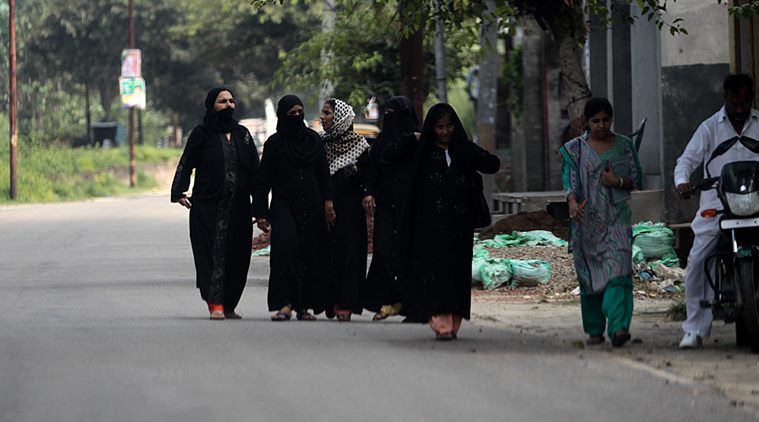Stay updated with the latest - Click here to follow us on Instagram
No scope for interference with Muslim Personal Law: Jamiat to SC
In its counter affidavit, the Jamiat stated that the Muslim Personal Law has an element of certainty and is not local or regional in operation.
 The affidavit said, “Muslim women enjoy greater freedom as there is no compulsion on the wife to remarry the same man or to contract any further marriage at all”.
The affidavit said, “Muslim women enjoy greater freedom as there is no compulsion on the wife to remarry the same man or to contract any further marriage at all”.
Prominent Islamic organisation Jamiat Ulema-i-Hind on Friday told the Supreme Court there is no scope for interference with the Muslim Personal Law in which triple talaq, ‘nikah halala’ and polygamy are well rooted and stand on much higher pedestal as compared to other customs. In its counter affidavit, the Jamiat stated that the Muslim Personal Law has an element of certainty and is not local or regional in operation.
“There is no scope for interference with the Muslim Personal Law, which is based on primarily the Holy Quran and the Sunnah of Prophet Muhammad, explained and applied by various scholars of great antiquity and authority after thorough research,” it said.
“The protection of peculiarities in personal laws is necessary for securing freedom of religion and bringing uniformity by removing those peculiarities shall be enforcement of Uniform Civil Code by the judicial process, which shall be against the constitutional bar,” it said.
Relying on various apex court judgements, it said that Fundamental Duties as in the Constitution does not not touch upon the personal laws of the parties.
“In personal laws, new concepts of modern times should not be evolved by the courts and it should enforce the law as derived from recognised and authoritative sources of personal laws except where such law is altered by any usage or customs or is modified or abrogated by statute,” the Jamiat said.
In its counter affidavit, the Jamiat has also said “the Muslim Personal Law stands on a much higher pedestal when compared to customs or practices because the former has element of certainty and is not local or regional in operation.”
Referring to Muslim Personal Law (Shariat) Application Act, 1937, the affidavit said that it has highlighted that Muslim women should be allowed to be governed by Muslim Personal Law instead of local customs and practices because the Muslim Personal Law treats “women with greater dignity”.
The Muslim body further said women who have approached the apex court on the issue should approach regular civil courts seeking adjudication of validity of divorce granted to them in the light of the law already settled by the Supreme Court.
The affidavit further said, ‘nikah halala’, which is surrounded by various misconceptions and when the talaq becomes absolute and irrevocable then the former husband and wife immediately fall in prohibited degree and they cannot remarry each other.
“However, if subsequently she enters into marriage with another man and the said marriage is also dissolved by any mode prescribed by Islam only then she can marry her former husband by way of fresh nikah,” it said.
The affidavit said, “Muslim women enjoy greater freedom as there is no compulsion on the wife to remarry the same man or to contract any further marriage at all”.
Earlier, All India Muslim Personal Law Board (AIMPLB) had rubbished the stand taken by the Centre that the apex court should re-look these practices as they are violative of fundamental right like gender equality and the ethos of secularism, a key part of the basic structure of the Constitution.
Government, for the first time, had opposed the practice in the apex court and said, “The issue of validity of triple talaq, nikah halala and polygamy needs to be considered in the light of principles of gender justice and the overridin principle of non-discrimination, dignity and equality.”







